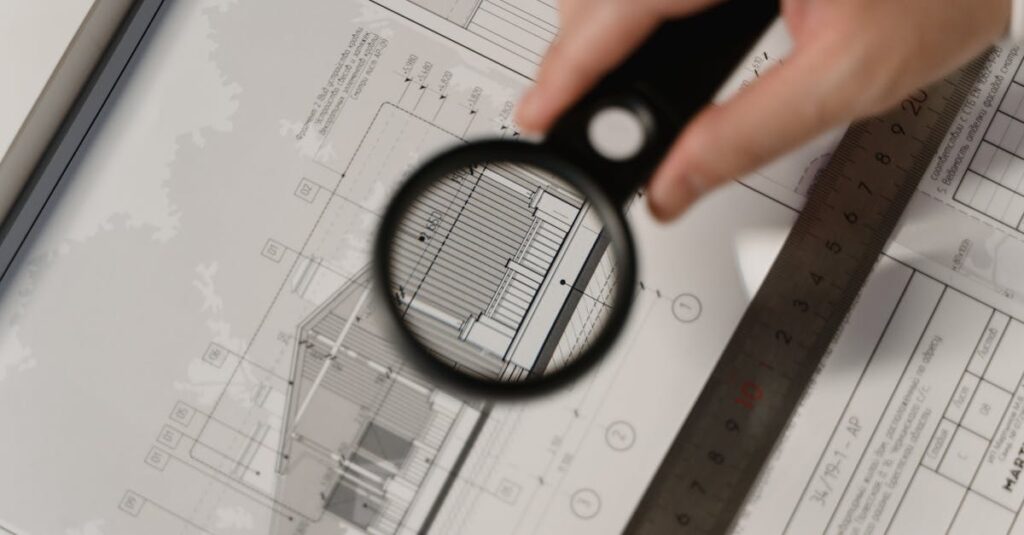Breaking into technical writing as a beginner can feel overwhelming, but I’ve discovered it’s actually an accessible field with plenty of entry-level opportunities. As someone who’s helped many aspiring technical writers launch their careers, I know that landing that first position requires understanding where to look and how to position yourself.
I’m excited to share that the demand for technical writers continues to grow, especially in technology, healthcare, and manufacturing sectors. While many job listings ask for experience, there are several paths to break into the field without years of technical writing under your belt. Whether you’re a recent graduate or changing careers, I’ll show you how to leverage your existing skills and find those elusive entry-level positions that can jumpstart your technical writing journey.
Key Takeaways
- Technical writing offers strong entry-level opportunities with median salaries ranging from $45,000 to $65,000 and steady job growth projection of 8-10% through 2024
- The most promising industries for entry-level technical writers include software/technology, healthcare, and manufacturing sectors, with tech companies offering the highest starting salaries
- Essential qualifications include a bachelor’s degree (English, Communications, or technical field), proficiency in documentation tools, and basic understanding of markup languages and version control
- Building a portfolio through open-source projects, getting certified, and joining professional organizations like STC are key strategies for breaking into technical writing without experience
- Most entry-level positions offer remote work flexibility (65% of roles), stable career paths, and clear advancement opportunities from junior to senior roles
Technical Writing Jobs Entry Level
Technical writing transforms complex information into clear documentation that helps users understand products services or processes. I’ve observed that technical writers create various materials including:
- User manuals for software applications
- Standard operating procedures for manufacturing processes
- API documentation for developers
- Medical device instructions for healthcare providers
- Training materials for corporate systems
The career offers compelling advantages in today’s digital economy:
Growing Job Market
| Year | Job Growth Rate | Median Salary |
|---|---|---|
| 2023 | 8% increase | $78,060 |
| 2024 | 10% projected | $81,400 |
Key Benefits of Technical Writing
- Remote work flexibility with 65% of positions offering work-from-home options
- Stable career path across multiple industries
- Clear advancement opportunities from junior to senior roles
- Competitive compensation with performance-based raises
- Project variety spanning different technologies domains
- Writing proficiency for creating clear concise content
- Research abilities for understanding complex topics
- Information architecture for organizing documentation
- Basic coding knowledge for software documentation
- Collaboration skills for working with subject matter experts
- Project management for meeting deadlines deliverables
Technical writing combines analytical thinking with creative problem-solving to make technical information accessible. I’ve found the role particularly suited for individuals who enjoy:
- Breaking down complex concepts into simple explanations
- Learning new technologies tools consistently
- Working independently on focused projects
- Collaborating with diverse technical teams
- Contributing to product user success
The field offers both entry-level positions for beginners transitioning careers plus advancement paths leading to senior technical writing roles content strategy positions.
Essential Skills and Qualifications for Entry-Level Technical Writers
Entry-level technical writing positions require a specific combination of educational background technical knowledge. These qualifications establish the foundation for creating clear technical documentation across various industries.
Educational Requirements
A bachelor’s degree in English, Communications, Journalism or Technical Writing provides the foundational knowledge for entry-level positions. Alternative degrees in Computer Science Engineering or specific technical fields complement writing skills with domain expertise. Professional certifications from organizations like the Society for Technical Communication (STC) or the American Medical Writers Association (AMWA) enhance credentials for specialized technical writing roles.
- Documentation Tools: Familiarity with MadCap Flare FrameMaker Adobe RoboHelp
- Version Control: Basic understanding of Git GitHub BitBucket
- Markup Languages: Working knowledge of HTML XML Markdown
- Content Management Systems: Experience with Drupal WordPress Confluence
- Graphics Software: Skills in Snagit Visio Adobe Creative Suite
- Basic Programming: Understanding of Python JavaScript CSS fundamentals
- API Documentation: Knowledge of Swagger OpenAPI REST principles
| Technical Skill Category | Required Proficiency Level |
|---|---|
| Documentation Tools | Intermediate |
| Version Control | Basic |
| Markup Languages | Intermediate |
| CMS Platforms | Basic |
| Graphics Software | Basic |
| Programming | Foundational |
| API Documentation | Basic |
Breaking Into Technical Writing Without Experience
Starting a technical writing career without prior experience involves creating tangible evidence of your skills through practical demonstrations. Here’s how to establish your credibility in the field.
Building Your Portfolio
I recommend starting a portfolio by documenting open-source projects on GitHub. Here are 5 effective ways to build your portfolio:
- Write installation guides for popular open-source tools
- Create user documentation for mobile apps
- Document APIs using standard technical writing practices
- Develop troubleshooting guides for common software issues
- Contribute to existing documentation projects on platforms like ReadTheDocs
My experience shows that including 3-4 polished samples demonstrates your capability to potential employers. Each portfolio piece requires clear organization, proper formatting, consistent terminology use.
Getting Certified
Technical writing certifications validate your expertise to employers. Here are the most recognized certification options:
| Certification | Provider | Duration | Focus Area |
|---|---|---|---|
| Technical Communication Certificate | Society for Technical Communication | 12 weeks | General technical writing |
| API Documentation Certificate | Document360 | 6 weeks | API documentation |
| Technical Writer Certification | Technical Writer HQ | 8 weeks | Software documentation |
| Medical Writing Certification | AMWA | 16 weeks | Healthcare documentation |
The certification process includes:
- Complete structured coursework in documentation principles
- Practice industry-standard tools like MadCap Flare or Adobe FrameMaker
- Submit practical assignments for professional review
- Earn digital badges for LinkedIn profile display
- Network with other technical writers in certification programs
These certifications strengthen your resume when applying for entry-level positions, particularly in specialized industries like healthcare or software development.
Top Industries Hiring Entry-Level Technical Writers
Entry-level technical writing opportunities span across multiple sectors with varying documentation needs. I’ve identified the following industries as primary employers of junior technical writers based on current market analysis.
Software and Technology Companies
Software companies hire entry-level technical writers to create user guides, API documentation, release notes, help articles for software products. Major tech companies like Google, Microsoft, Oracle, and Adobe consistently recruit new technical writers with starting salaries ranging from $60,000 to $75,000. Common entry-level positions include:
- Documentation Specialist for software user interfaces
- Technical Content Writer for knowledge bases
- Junior API Documentation Writer
- Product Documentation Coordinator
- Technical Documentation Assistant
- Medical Documentation Specialist
- Clinical Documentation Writer
- Medical Device Technical Writer
- Healthcare Communications Coordinator
- Regulatory Documentation Assistant
| Industry Sector | Average Entry-Level Salary | Job Growth Rate (2024) |
|---|---|---|
| Software/Tech | $60,000 – $75,000 | 12% |
| Healthcare | $55,000 – $70,000 | 9% |
Job Search Strategies for Entry-Level Technical Writers
Technical writing job searches require a strategic approach focused on industry-specific platforms and professional connections. Here’s how to maximize your job search effectiveness:
Networking and Professional Organizations
Professional organizations open doors to entry-level technical writing positions through targeted networking opportunities. The Society for Technical Communication (STC) provides job boards, mentorship programs and local chapter meetings for connecting with industry professionals. Other valuable organizations include:
- Join Write the Docs for documentation-focused networking events
- Participate in IEEE Professional Communication Society webinars
- Attend Technical Writer HQ virtual meetups
- Connect with ACES: The Society for Editing members
- Follow Technical Communication Association discussions
- Technical Writing Job Board
- Features junior technical writer positions
- Allows filtering by required experience level
- Posts remote entry-level opportunities
- LinkedIn Jobs
- Offers company research capabilities
- Enables direct hiring manager connections
- Provides salary insights for similar roles
- Indeed Technical Writing
- Lists positions by location and industry
- Features contract-to-hire opportunities
- Displays detailed job requirement breakdowns
- Dice
- Specializes in technology industry positions
- Highlights technical writing internships
- Posts documentation specialist roles
| Platform | Entry-Level Job Volume | Average Starting Salary |
|---|---|---|
| 500+ monthly | $55,000 – $65,000 | |
| Indeed | 300+ monthly | $50,000 – $60,000 |
| Dice | 200+ monthly | $58,000 – $68,000 |
| Tech Writing Job Board | 100+ monthly | $52,000 – $62,000 |
Average Salaries and Growth Potential
Entry-level technical writers earn competitive salaries with substantial room for growth. Based on current market data, I’ve compiled the following salary ranges across different industries and experience levels:
| Position Level | Average Salary Range | Years of Experience |
|---|---|---|
| Entry-Level | $45,000 – $65,000 | 0-2 years |
| Mid-Level | $65,000 – $85,000 | 3-5 years |
| Senior-Level | $85,000 – $120,000 | 6+ years |
| Lead/Manager | $100,000 – $150,000 | 8+ years |
Industry-Specific Entry-Level Salaries
Different industries offer varying compensation packages for entry-level technical writers:
- Technology sector: $55,000 – $70,000
- Healthcare/Medical: $50,000 – $65,000
- Manufacturing: $45,000 – $60,000
- Government: $42,000 – $58,000
- Finance: $48,000 – $63,000
Salary Growth Factors
Several factors influence salary advancement in technical writing:
- Specialized industry expertise (cybersecurity, healthcare)
- Technical certifications (API documentation, DITA)
- Programming language knowledge (Python, JavaScript)
- Project management capabilities
- Team leadership experience
Entry-level technical writing salaries vary by location:
| Region | Average Entry-Level Salary |
|---|---|
| San Francisco Bay Area | $65,000 – $80,000 |
| New York City | $60,000 – $75,000 |
| Seattle | $58,000 – $73,000 |
| Austin | $52,000 – $67,000 |
| Chicago | $50,000 – $65,000 |
- Associate Technical Writer: Entry position
- Technical Writer I: 2-3 years experience
- Technical Writer II: 4-5 years experience
- Senior Technical Writer: 6-8 years experience
- Lead Technical Writer: 8+ years experience
- Documentation Manager: 10+ years experience
Regional Salary Variations
Breaking into technical writing at the entry level is more achievable than many think. I’ve seen firsthand how the field welcomes newcomers who demonstrate strong writing skills and technical aptitude through well-crafted portfolios and relevant certifications.
With starting salaries between $45000 and $65000 plus excellent growth potential this career path offers both stability and advancement opportunities. I’m confident that aspiring technical writers who follow the strategies I’ve outlined will find their place in this rewarding profession.
The key is to start building your portfolio focus on continuous learning and tap into the right professional networks. Whether you’re a recent graduate or changing careers technical writing offers a promising path forward in today’s digital economy



